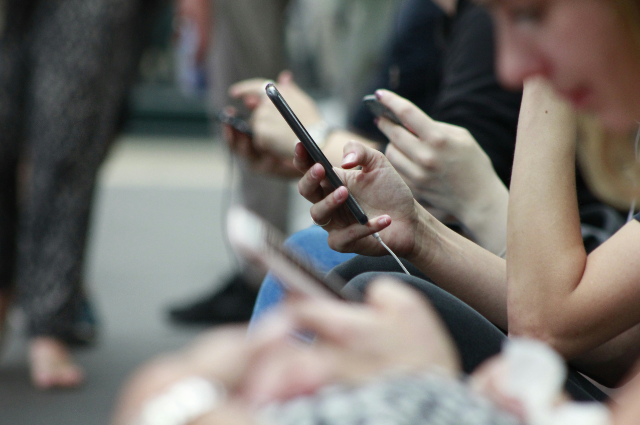
Photo by ROBIN WORRALL on Unsplash
Introduction: Are We Really Choosing?
In an age of hyperconnectivity, we appear to have more choices than ever—but are these choices genuinely free, or merely manufactured illusions shaped by algorithms, power structures, and social conditioning?
Coming from a philosophy background, I’ve always had this bad habit of doubting things. Reading philosophers made me question my existence, rethink reality, and challenge the very foundation of what I believed to be true. But sometimes, we must ask ourselves the kind of questions no one around us dares to pose. One such question is this: Do we truly have free will?
Especially today, when most of our decisions are shaped by technological forces—tapping a screen, receiving recommendations, scrolling through algorithmically curated feeds—are we really making choices for ourselves?
A head-scratching question, isn’t it?
Why would anyone want to think about this in a world where doorstep services are faster than your Wi-Fi on a rainy day? Everything is fast-paced. It feels like even time has been accelerated. Social media, online apps—our decisions are shaped unconsciously, almost intuitively, by an environment designed to guide our behavior.
The Profit-Making Mindset Behind Modern Living
Where do capitalism and consumerism stand today? People are buying more products than ever. The economy is booming. For news headlines, it makes for a great story. For political parties, it’s the perfect pitch to celebrate national progress.
But is there anyone asking whether this is the right kind of growth? Do we really have a choice in deciding what's best for us?
Life may seem easier. We travel in air-conditioned cars while scorching heat—a byproduct of climate change—burns outside. We order delicious meals on demand, packed in layers of plastic and preservatives. But like a fake flower that looks beautiful from afar, it’s all superficial.
Where does profit come from in this model?
It comes from overconsumption, manufactured desires, and the romanticization of luxury as an essential part of life. Technology advances, but rarely solves real problems. Diseases perish, but new epidemics emerge. Is our science truly inefficient, or is it rooted in a system that thrives on unsolved problems?
Free Will: A Myth Disguised as Choice
Did you choose to be who you are today? Or was your identity constructed before you could even speak?
From the moment we’re born, we’re labeled—someone’s child, someone’s caste, someone’s religion. These inherited identities and ideologies shape our worldview long before we learn to question them.
When was the last time you thought unbiasedly, free from the weight of inherited beliefs?
If everything around us shapes our thinking, did we ever truly get a chance to choose our thoughts?
So Many Options, Yet So Much Indecisiveness
“Doomscrolling”—a word born in the post-COVID world—perfectly captures today’s paradox. We are bombarded with more content than any library in history could hold, and yet, there’s overwhelming misinformation. People are fooled by half-truths and misled by the illusion of knowledge.
Our digital footprint reveals who we are more intimately than even our words do. From someone’s "For You Page" to their YouTube suggestions, you can trace a person's inner world. Information overload has become the new normal. Choice paralysis is real. We are flooded with options, yet lack the clarity to choose wisely.
Algorithms: The Invisible Designers of Our Desires
Being able to search for anything and getting personalized content seems like empowerment, but it’s deeply deceptive.
In this vast ocean of knowledge, algorithms narrow our exposure. They serve us content not for our growth, but for engagement, profit, and control. Echo chambers and confirmation biases are not coincidences—they’re engineered.
Everything you touch, use, and consume is designed with an intention. But whose intention?
In a system driven by profit, algorithms consume the consumer. Before any new invention is introduced, is society ever asked whether it’s truly needed?
Why do we assume every technological advancement is a step forward?
Democracy and the Mirage of Freedom
“A prisoner polishing his own chains believes he's a blacksmith.”
The great modern ideals—equality, liberty, freedom—sound noble. They fill citizens with a sense of belief and control. But what if democracy itself is a smart illusion—a clever system of control where people believe they are free?
We elect leaders. We grant them the power to shape institutions. But in doing so, we often surrender our own ability to shape our decisions.
Think of it like this: we gave our house keys to a thief and now hope he doesn’t rob us.
The word “choosing” is filled with fallacy. No society is ever truly free from socio-political conditioning. Even in the most advanced democracies, power can manipulate perception, and perception guides choice.
Democracy offers the hope of change. But rarely does it deliver it in its purest form. It’s like a hand that appears above water to a drowning person, but never truly reaches to pull them out.
Conclusion: The Cage of Choice
We are evolving as a society, but nothing is perfect. Not our political systems. Not our technologies. Not even our sense of progress. We live in an age of illusion—of growth, of development, of freedom.
We’re told we can choose freely, but we rarely question the knowledge systems that define what we even consider as “choices.”
We don’t know what we’re missing, so the choices we do have feel real. And that’s the most dangerous illusion of all. We are taught to think freely,
But we don’t realize that the very knowledge which allows us to think freely is trapped in a cage—one that limits itself.
It is a paradox where the mind believes it’s unbound,
While its framework is quietly constructed by forces unseen.
